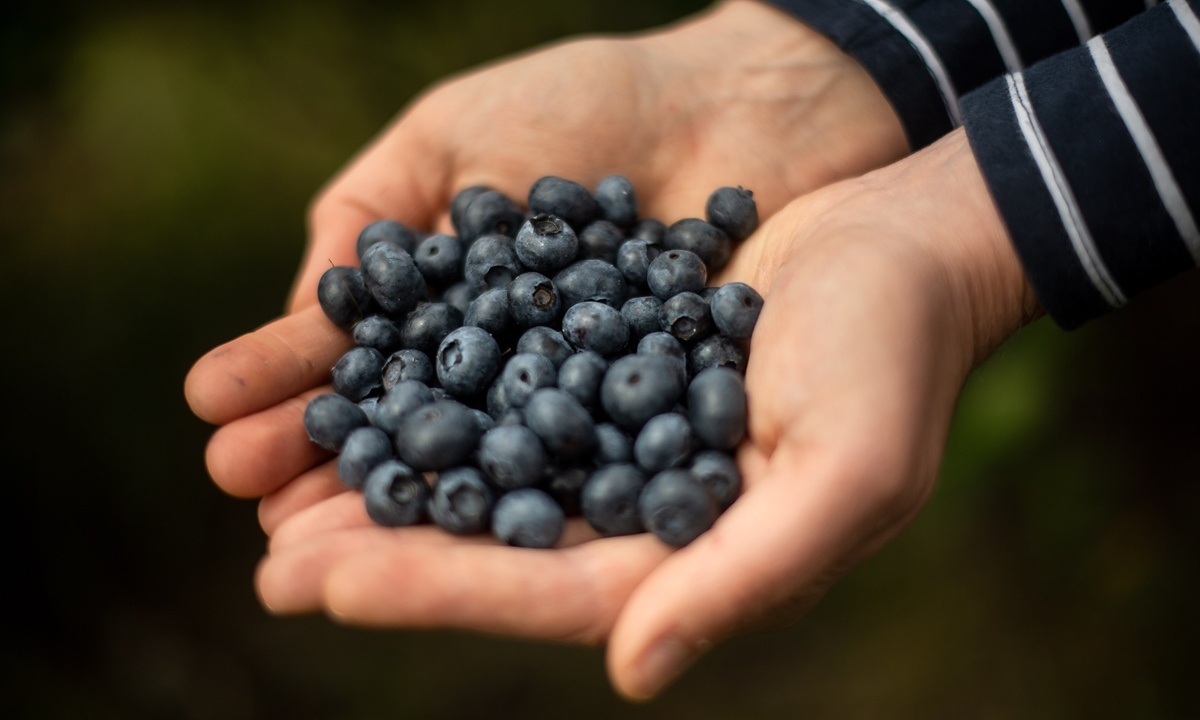
In South Africa, 24,000 tons of blueberries are projected to be harvested in 2020. (Photo: AFP)
Floppy hats and face masks on, hundreds of workers carefully pick a bumper crop of blueberries on the sunny slopes of the Groenlandberg, a spur of South Africa's Hottentots Holland Mountains.
Declared a superfood, the purplish fruit has allowed South African producers to sail through the setbacks of the coronavirus pandemic, exporting punnet after punnet of berries all year.
At the Chiltern blueberry farm, workers surrounded by shrubland delicately packed small dark blue balls into neatly stacked boxes, ready for shipping.
Global demand for blueberries has grown 12 percent a year since 2013, according to the International Trade Centre.
Fueling the surge are the fruit's well-marketed health properties.
Blueberries are packed with antioxidants - molecules that combat rogue compounds called free radicals, which are linked to cancer, diabetes and heart disease.
Chiltern farm manager Anton Both said business had boomed over the past decade.
"It was around 80 tons when I started here 10 years ago and now we're harvesting around 1,400 tons," he said.
Both said farm owners had bought more land to keep up with demand.
More than 600 workers are now needed to pick berries during harvest season.
In the valleys below, other farms have followed suit, ripping up historic apple orchards and strawberry fields, replacing them with rows of net-covered blueberry bushes.
The investments have helped South Africa's blueberry production rise 40-fold over the past 12 years - a whopping 24,000 tons are projected to be harvested in 2020 alone, according to the South African Berry Producers Association, also known as BerriesZA.
More than 90 percent of the country's blueberries are sold abroad, mainly in Europe and Britain.
The record 2020 harvest is expected to rake in more than 2.0 billion rand ($130 million) - a blessing for an economy that was already staggering before it was hit by coronavirus.
According to official figures, South Africa's gross domestic product collapsed by an annualized 51 percent in the second quarter of 2020, and more than 30 percent of the workforce is unemployed, the highest level since 2008.
"We have great varieties and great quality fruit," said BerriesZA manager Elzette Schutte.
"We are closer to Europe and the UK than [competitors] Peru or Chile," she added.
While South Africa is still dwarfed by blueberry producing giants such as the United States and Canada, Schutte said producers were vying for markets in China and South Korea that would further expand the industry.


